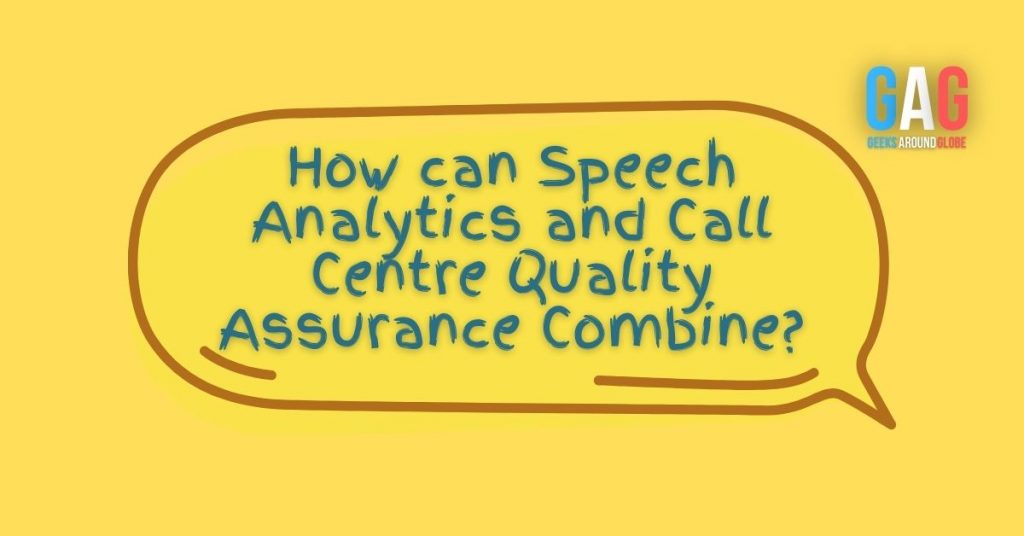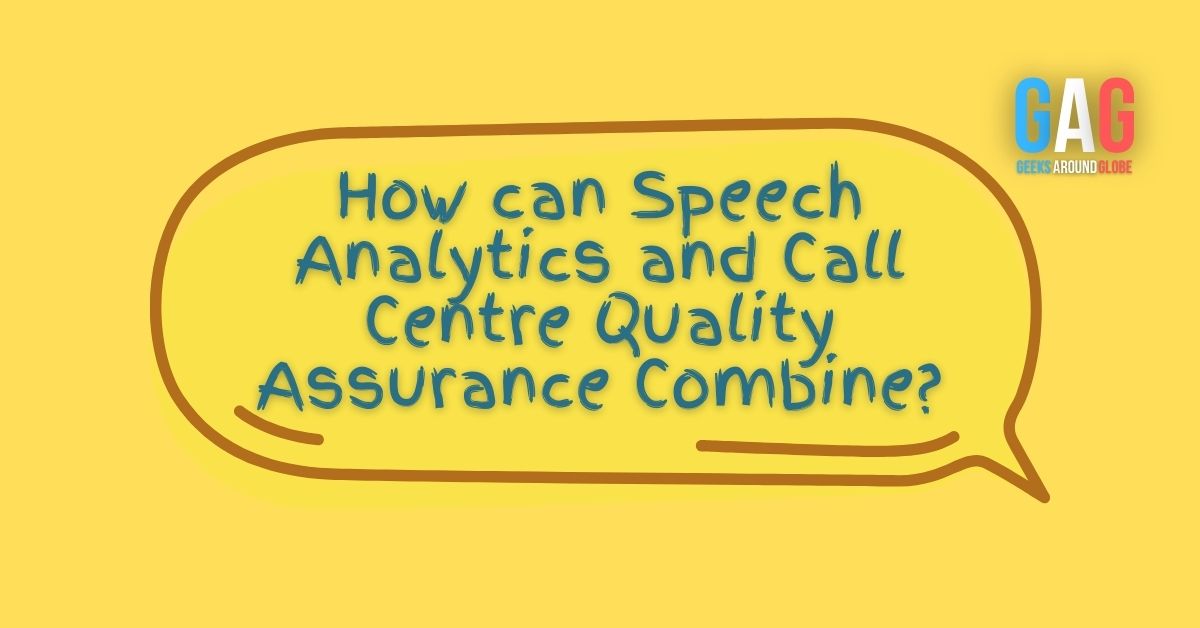
Call center quality assurance (QA) has been an essential part of improving agent efficiency, maintaining compliance, and improving the consumer experience for four decades. While advances in IVR and chatbots have increased automation in contact centers, phone support still remains a critical feature.
However, today’s contact centre QA systems are plagued by inefficiencies that affect entire organizations, and that is why versatile speech analytics software is a step in the right direction.
What is Speech Analytics?
Speech analytics is a technology-focused method that call centres can use to categorize communications based on a series of personalized guidelines. It integrates speech recognition technologies with text interpretation and pattern spotting.
When a consumer dialogue is registered, speech analytics software automatically reviews it and converts it into machine-readable text. Contact centre managers will mine unstructured voice data to detect engagement patterns with the help of speech analytics tools. Theoretically, these can be used to decipher and translate the code and also assess the performance and accuracy of the agent(s)’ encounters with customers.
The desire for more reliable call centre efficiency metrics is the driving force behind speech analytics. Contact centre executives understand the flaws in their existing quality assurance processes. Notwithstanding, they are aware that call quality assurance software contributes significantly to their departments. Even a small volume of data about patterns, device problems, bad practices, and underperforming agents is preferable to zero.
The challenge has always been persuading front-line managers, who are often overworked, to set aside time to respond to calls so that they identify those who need immediate attention and then evaluate and mentor their agents. Exit surveys at outsourcers also reveal that the most common reason agents leave is a lack of prompt or appropriate coaching. This problem can be solved by implementing an integrated quality assurance mechanism that monitors all calls, categorizes them, and detects new trends and patterns. An automated call recognition process provides a closed-loop system for providing effective coaching to agents on a reliable and timely basis.
What Role Does Speech Analytics Play in The Quality Assurance Process?
Although speech analytics and AI cannot and should not replace the existing contact centre quality assurance system, they do have a position if you have the necessary technologies and resources.
Speech analytics for improving call centre QA has the advantage of being able to listen to 100% of conversations and extract insights on your consumers’ needs based on comments made or actions taken. It will then use this data to make recommendations based on patterns and account statistics, assisting the staff in providing a great customer experience. However, call centres must integrate this process with their current QA process to successfully track and score calls.
Speech analytics’ real benefit comes from the opportunity for call scripting, not just a snapshot, to watch for breaches, dangerous language, and actions that lead to success or loss. It would classify these calls as constructive, bad, or neutral encounters, allowing the evaluators to concentrate on specific calls for further investigation.
You can develop a sophisticated call centre QA mechanism that provides actual and concrete feedback on optimizing the customer experience by combining machine learning with human input into agent engagement through voice/call, speak, or email.
Speech Analytics Software’s Costs and Benefits
It is difficult to be prescriptive here since every business argument must be constructed based on the applicable predominant conditions and considerations. However, several people point to six advantages of using analytics:
- Compliance and risk control
- Increasing the level of quality
- Improvement in conversion rates and, as a result, customer retention
- Increased searchable data allows for a deeper view of the user, as well as customer satisfaction and churn reduction.
- Additional resources by allowing individual evaluators more time to enhance efficiency.
For several years, advanced analytics providers mostly catered to companies with advanced contact centre operations, with 250 seats often cited as the minimum viable size in most cases. However, various pricing models have recently become viable, not least due to the increasing shift away from premise-based to Software as a Service (SaaS) or ‘cloud’ deployments.
- In addition to the license fee, certain speech analytics providers can also charge for:
- Extraction of phone calls
- Integrations of other applications
- Ongoing maintenance fees to get you up and running and to keep the program up to date.
- Professional support
Closing Thoughts
Overall, speech analytics is a valuable addition to the QA toolbox, and with proper preparation and implementation, it will become an essential part of the QA method in contact centres. It is already a costly solution, and achieving a good return on investment necessitates tight collaboration between the provider and the customer over time to achieve goals and targets.
However, speech analytics can’t yet substitute human observation and insight, so establishments should blend it with the internal quality assurance scoring and monitoring framework for the best outcomes.






